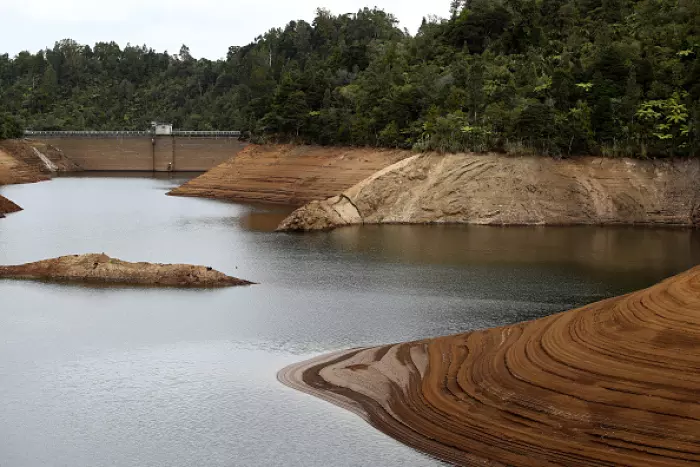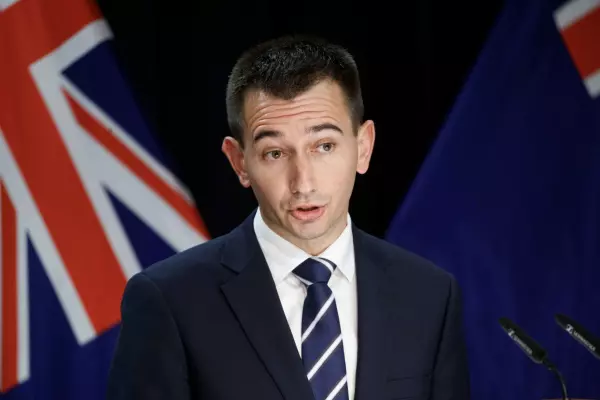If noisy opposition was the measure of the government’s proposal to merge the country’s drinking, waste and storm water services into four instead of 67 bodies, you’d pronounce it a dead duck.
Most councils seem to be against it, for one reason or another.
Some councils believe they’ve done a good job of investing in their water services and will just end up subsidising other places where they’ve done a bad job.
Some councils fear a substantial loss of relevance if some of their largest assets are taken off their books.
Others, like Auckland, need Watercare on their books because their credit rating is measured on a ratio of revenue raised every year against the value of the assets of their balance sheet.
Since Watercare’s assets are worth about $11 billion and Aucklanders pay water charges, unlike the rest of the country, taking those assets off Auckland Council’s books might well create quite a big problem for the levels of debt the council carries already.
There are also fears the four big entities could be more easily privatised, even though they would remain owned by the various councils who own the assets now and be co-governed by Māori interests, whose opposition to privatisation is more or less baked in.
Then there are those who call it theft, even though the assets would still be council-owned.
What is lost is governance, not ownership. That is obviously a big deal, but it is not theft.
Some argue it would be better to put a tough regulator in place and let them force improvement while also forcing value for money. That change is happening too, but the government has convinced itself it will be more likely to get better management, cost efficiencies and effective regulation with a few big regulated water entities rather than the current plethora.
Duelling experts
Yet another tangent of the objections relates to whether exhaustive analysis used to justify the reforms is right or not.
These arguments pit the Water Industry Commission of Scotland (WICS), which worked for the government, and the international water services expertise of economic consultancy, Castalia, which did alternative analysis for Local Government New Zealand.
Castalia thinks WICS is wrong, and vice versa.
Luckily for local government minister Nanaia Mahuta, LGNZ has signed up in principle to the reforms, so while the views of duelling experts may be both interesting and valid, the politics is far less about the competing analysis than it might otherwise have been.
Mahuta has been creeping up on these reforms since holding the portfolio first in the Helen Clark cabinet and her recent comments suggest she has cabinet backing to see these reforms through.
After more than 30 different modelling exercises, 20 years of chit-chat, ample evidence of deteriorating drinking and waste water quality, she’s determined it’s time to act.
Costs either way
“There are inherent challenges that create a cost burden either way for taxpayers or ratepayers,” Mahuta told parliament, reeling off a bibful of targets the reforms are intended to address: “public health and environmental outcomes, improved service efficiency, a financially sustainable system, improved infrastructure delivery and decision-making, and upholding the interests of iwi through Te Mana o Te Wai”.
She and her cabinet colleagues appear to be confident about the politics of this for a couple of reasons.
First, try unpicking that lot.
Second, New Zealanders care deeply about cleaner water.
Third, the cabinet knows that most councils agree this is a big national problem that needs fixing.
Even if the 30-year estimated cost of $185b is too high, the central government offer to help fund the shortfall is compelling.
It also knows three waters is not the issue that will win or lose it the next election.
That honour is down to the management of covid-19.
Wellington can live with the fact many councils secretly see some good in the reforms but would rather be forced into them by legislative sledgehammer rather than the consensus Mahuta would prefer.
That’s a much easier place for councillors to campaign from at next year’s local body elections than trying to explain the complex need to catch up on decades of under-investment in clean water somehow.
With cabinet due to make decisions on this next month, the sledgehammer looks the likely option.
A win for Māori
Perhaps the area of greatest political risk is the potential for the three waters reforms to morph into ugly racial politics.
The proposals create co-governance of the four national water services entities with Māori.
For people unhinged by the idea New Zealand might be known by an alternative Māori name, the three waters reforms are particularly scary.
For National's local government spokesman Christopher Luxon and assumed future party leader, the issue is a gift. The party has already collected 25,000 signatures in a petition opposing the policy, albeit based on the 'theft' rather than the race argument.
For further evidence of the backlash, check out the unusual volume and vitriol in Facebook comments accompanying BusinessDesk’s report of Mahuta’s answers to parliamentary questions last Wednesday.
My own inbox was further proof. Writing from a phony email address, ‘John Little’ interpreted this news report of an emphatic ministerial position as “just typical MSM favouring the government”.
“This was never about delivering better water quality for NZ, and you know it. This is to give Maori control of water. Why haven’t you got the guts to at least mention it in your article? You’re just bloody gutless.”
There’s your mention, John. Feeling better now?
Grown ups
What’s striking about this underbelly of racially charged fear is how little it was on display among those who are otherwise most challenged by the reforms: the local body politicians who will implement them.
The government put huge political capital into the Local Government NZ conference in mid-July in Blenheim, where the prime minister, finance minister, Mahuta, and minister in charge of enthusiastic nodding Carmel Sepuloni all turned out to spruik the three waters policy.
The assembled local body leaders may have been far from persuaded, but Māori co-governance wasn’t the issue. They were worried about how much money the government would squirt their way for supporting the reforms, whether they’d be electable if they were to say they agreed with them, and whether the sums were right.
In about that order.
That said, Māori co-governance of anything is clearly challenging.
For example, the issue of three waters co-governance has come up a lot in submissions from local bodies during the current hearings on Resource Management Act replacement. Māori themselves, it seems, are routinely challenged when asked to nominate their representatives.
But there is a relative maturity among local body leaders about the value and necessity of relationships with iwi. The concept is no longer controversial, no matter how politically or operationally difficult it may still be in practice.
For most, this is simply part of New Zealand growing up as a nation, particularly when it comes to water.
While it may be news to ‘John Little’, the concept of Māori having legitimate rights and interests in freshwater is a known policy conundrum. The Supreme Court acknowledged it in 2013 and while the path to a Treaty of Waitangi settlement on water is extremely complex, it is something both National and Labour-led governments have had to work towards.
That means passing through the eye of a policy needle in which no one can be allowed to ‘own’ water, but in which many existing water users have rights that look a helluva lot like ownership.
A farm with a water right is valuable. A farm without one cannot be irrigated, except by rainfall. You see the issue.
The water conundrum
Nonetheless, over years, an accommodation is emerging between Māori, the Crown and existing water users – both private and public. Among those accommodations is the creation of roles that acknowledge the legal and Treaty-guaranteed right for Māori to have a say in how water is managed.
In fact, it was that bastion of capitalist ambition, former National party environment minister Amy Adams, who first introduced the concept of Te Mana o Te Wai to the freshwater management debate.
The three waters reforms are a further manifestation – and an ambitious one – of the effort to make that obligation a reality and one that also improves the water we drink, the water we dispose of, and the water that arrives whenever there’s a flood.
They are also an ambitious attempt to fix a problem that has been looking insoluble.
Critique the reforms by all means, but they are issues about a source of life. They deserve better than to be treated as issues of race.














